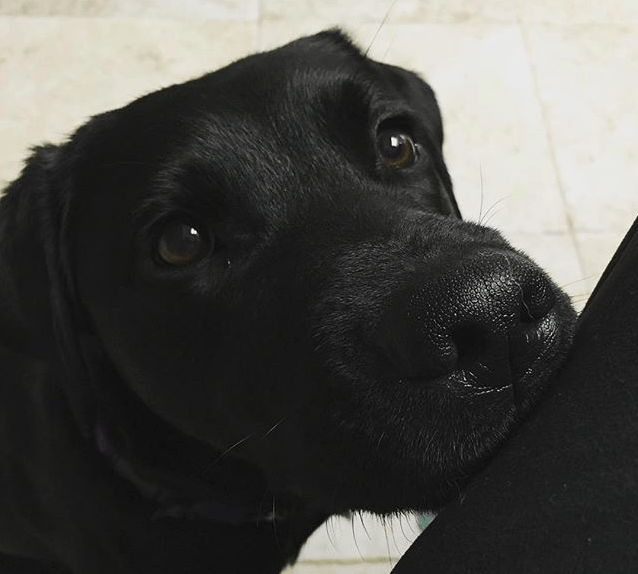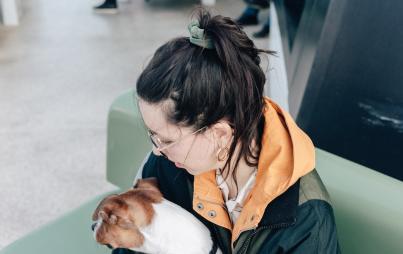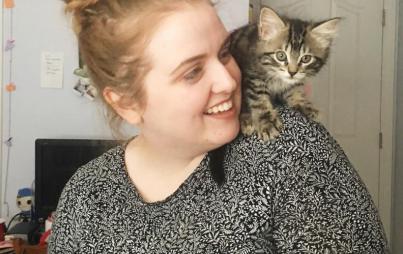
"Dogs, as we all know, are awesome." Image: Instagram.com, early_alert_canines
Dogs, as we all know, are awesome. Anyone who has ever scratched an adoring pooch behind the ears or watched a video of gamboling puppies on the Internet knows that a moment in the company of a dogs is a moment well spent.
The human-dog relationship has been mutually beneficial for centuries. Not only have dogs been companions, we have taught dogs to help with farming, protect us, and even provide transportation — sled dogs, anyone?
In the modern era, we have asked dogs to help people with disabilities by acting as their eyes or ears, and dogs have gladly answered the call. Dogs have become emotional support animals for those who need some unconditional love to get through life.
Now there’s one more truly amazing thing we can credit dogs with doing for people — they can be taught to sense when a diabetic person’s blood sugar is in the danger zone and alert the person to take action.
Some people with diabetes need to test their blood sugar as often as once per hour. Letting their glucose levels get too low or too high can be very dangerous. Dogs can be taught to detect glucose levels and alert their owner to test their blood, sometimes up to 30 minutes before the person would start to feel symptoms.
The magic is in the dog’s powerful sense of smell: dogs can be taught to recognize the scent of hypoglycemia and react to it, usually by tapping a person with their nose or paw.
The dog can be especially useful at times when a person would have trouble doing regular blood sugar tests — while traveling, for instance, or while sleeping. I would think a diabetic alert dog would be incredibly helpful for a child with diabetes as a safeguard against the natural forgetfulness of kids.
It takes 18 months or more to train a diabetic alert dog, but I’d say that’s worth it for the service — and love — those dogs will provide their humans.







